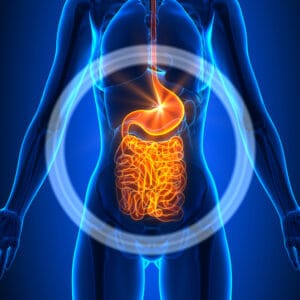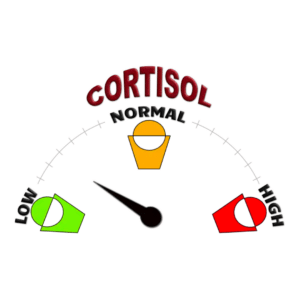A vegan diet is a plant-based diet that avoids all animal foods, including fish, meat, shellfish, dairy, eggs and honey. Whereas vegans were once considered a group of hippies, veganism has now become mainstream. Vegan food options are everywhere, and there is no longer a need to hunt down vegan options or a vegan cafe in a bohemian part of town.
In the US, 3% of people follow a vegan diet, with another 6% identifying as vegetarian, and that number is increasing (1). In the UK, research carried out by Ipsos reveals that amidst the ever-increasing variety of plant-based products entering the market, 46% of Brits aged 16-75 are considering reducing their intake of animal products in the future (2). This is due partly to campaigns such as Veganuary, a non-profit that encourages people to be vegan for January, and to the rise in endorsements from sporting icons and celebrities.
The reasons for adopting a vegan diet vary but include the following:
- Ethical concerns: Many people choose to go vegan because of their opposition to the exploitation and mistreatment of animals. They believe that all living beings have the right to live free from harm and that raising animals for food is cruel and unnecessary.
- Health benefits: A well-planned vegan diet can lower the risk of heart disease, diabetes and certain types of cancer.
- Environmental concerns: Some people choose to go vegan because of animal agriculture’s environmental impact.
- Personal beliefs: Some people may choose to go vegan for personal, spiritual or religious reasons. They may feel that a vegan lifestyle aligns with their values and beliefs.
- Taste and preference: Some people simply enjoy the taste of plant-based foods and find them more satisfying than animal products.
A vegan diet can be healthy if it is well-planned and provides all the necessary nutrients. It is essential to include a variety of whole, nutrient-dense foods such as fruits, vegetables, whole grains, legumes and nuts. Some examples of plant-based sources of protein include:
- Tofu and tempeh.
- High-fibre legumes such as beans, lentils, and chickpeas which are also high in iron and other essential nutrients.
- Wholegrains such as quinoa, bulgur and barley. They also provide essential vitamins, minerals and fibre.
- Nuts and seeds like almonds, pumpkin seeds and chia seeds.
- Mycoprotein, a type of protein made from fermented fungus.
It is important to pay attention to nutrient deficiencies that can occur with a vegan diet, such as those of vitamin B12, iron, calcium and omega-3 fatty acids. These deficiencies can lead to health problems if not addressed. Vitamin B12 is vital. It is an essential nutrient typically found in animal-based foods, such as meat, fish, eggs and dairy products. It can be more difficult for vegans to obtain adequate amounts of B12. Plant-based sources include algae such as nori, spirulina and chlorella. However, the quantity and bioavailability of B12 in these sources is variable and not well established; therefore, it is advisable to consult with a healthcare practitioner before including these in the diet as a source of B12.
Vegetarians and vegans may need to take a B12 supplement to ensure they get enough of this essential nutrient.
A vegan diet can also be high in processed foods, leading to health problems. Fake vegan meats and cheeses may be high in sodium, unhealthy fats and added sugars, so it is important to check the ingredient list and nutrition information before consuming them. These plant-based alternatives should not be considered as a replacement for a varied and balanced diet that includes plenty of whole foods. Consuming these products in moderation and alongside a balanced diet is better.
Vegans should consider the bioavailability of the nutrients they are considering as substitutes for protein, iron, calcium, omega-3 fatty acids, or vitamin B12. Bioavailability refers to the amount of a nutrient or other substance that can enter the body and be used by the body’s cells, tissues, and organs. In other words, it measures how much of a nutrient is absorbed and utilised by the body. Different forms of a nutrient may have different bioavailability. For example, the bioavailability of a food source may be lower than the bioavailability of the same nutrient in supplement form. Regarding B12, the bioavailability of vitamin B12 is generally low, and it is estimated that only about 1-5% of the B12 in food is absorbed (3).
For all the above reasons, it is advisable to consult a healthcare practitioner before drastically changing an individual’s diet. If choosing a vegan diet, an individual should ensure it is well-planned and balanced for optimum health.
sources:
1. Fernandes, L. (2023). Consumer Outlook 2023: The unsettled state of global consumers. [online] NielsenIQ. Available at: https://nielseniq.com/global/en/insights/analysis/2023/consumer-outlook-2023-the-unsettled-state-of-global-consumers/ [Accessed 28 Jan. 2023].
2. Allen, L.H. (2010). Bioavailability of Vitamin B12. International Journal for Vitamin and Nutrition Research, 80(45), pp.330–335. doi:10.1024/0300-9831/a000041.
3. Allen, L.H. (2010). Bioavailability of Vitamin B12. International Journal for Vitamin and Nutrition Research, 80(45), pp.330–335. doi:10.1024/0300-9831/a000041.








